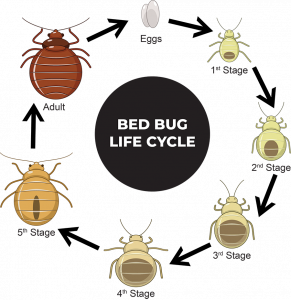April showers bring May flowers … and pests! Generally, many insects survive the winter months as immature larvae with the protection of heavy debris litter, and when the weather doesn’t fluctuate between thawing and freezing temperatures. With the pandemic shifting food waste to residential buildings, however, now is also the time for property owners/managers to protect their residents from these unwanted guests.
For insights into pest control challenges and tips on how to swat them, we turned to Paolo Bossio, president and CEO of Advantage Pest Control.
Why is spring an important time to consider pest management?
 This is the time of the year when the weather starts warming up and most pests begin to become active from their dormant state to forage, lay eggs, and expand their colonies. However, mice and rats remain active all year long, even during the colder months. They will eat just about anything to survive, and the gestation period for mice is anywhere from 21 to 28 days. So, it is smart to consider pest management all year round.
This is the time of the year when the weather starts warming up and most pests begin to become active from their dormant state to forage, lay eggs, and expand their colonies. However, mice and rats remain active all year long, even during the colder months. They will eat just about anything to survive, and the gestation period for mice is anywhere from 21 to 28 days. So, it is smart to consider pest management all year round.
How has the pandemic compounded the problem?
One major problem is that it has forced many restaurants to rely on food delivery services to serve their customers. What that does, though, is it transfers the food waste from commercial properties to residential establishments. Now, all the mice and rats who used to feed on the dumpsters behind restaurants or strip malls are following that food trail to condos, apartments, or single-family dwellings.
Over the year, we have witnessed thousands of mice and rats behind multi-residential buildings where they’re very well fed. That’s why we sent our technicians to our property managers to check if that is happening at their property and ensure they were well prepared to manage the issue. This is an example of our dynamic integrated pest management approach.
Integrated pest management (IPM) describes an ongoing process of pest control that takes an eco-forward approach to manage pest populations. The first step is an inspection of the pest population or environmental conditions indicating that pest control must be taken, and the second is identifying and monitoring pest activity. Next comes preventative measures and exclusions, and the last step is controlling the problem by using physical trappings and using baits and sprays when appropriate.
Dynamic IPM, however, is about seeing things before they happen and adapting to our customer’s needs. Each program is specifically curated to each multi-residential building since each residential home is unique. As Wayne Gretzky said, “it’s about where the puck is going, not where it has been.”

For example, when we do a roach service treatment and we are using a combination of a spray and aerosol inside an apartment, what if the person cannot leave? What if they are bedridden or have no place to go because of the pandemic? We must get creative and maybe slightly alter how we complete the service by using the vacuum or use more glue boards. We cannot just say, “Well, this is the IPM program, so we can’t change anything.” Our team is trained to be agile and ready to modify their approach according to the circumstances, even if that means taking more time to do the job more thoroughly and responsibly.
One of the questions I ask during technician interviews is, “How many units can you treat in a day?” which is a trick question. Some applicants come from pest control companies where they are expected to handle 30 or 40 units a day, but if they say they’re proud of doing that many, they usually don’t make it past to the next round since it isn’t about the number of treatments they can do, but the quality and outcome from doing the job. I want to ensure our team delivers quality treatments and top-notch customer service, even if it takes more time to get the job done efficiently and effectively.
What pest management tips can you offer property managers to prepare for spring and summer?
There are a few things property stakeholders and property managers can do. For instance, always check the exterior of your property to make sure there is no water leaking from the gutters, and the water pump is pushing the water away from the property if you have one. Standing water is a breeding ground for insects! Also, do not store any debris or firewood at the side of the property because that can act as a new point of the harbour for mice or rats.
Another tip is to check surrounding trees are not touching the property. If you have a limb touching the roof or a balcony, that can be an open invitation to unwelcome guests like squirrels, which are now looking for places to procreate.





